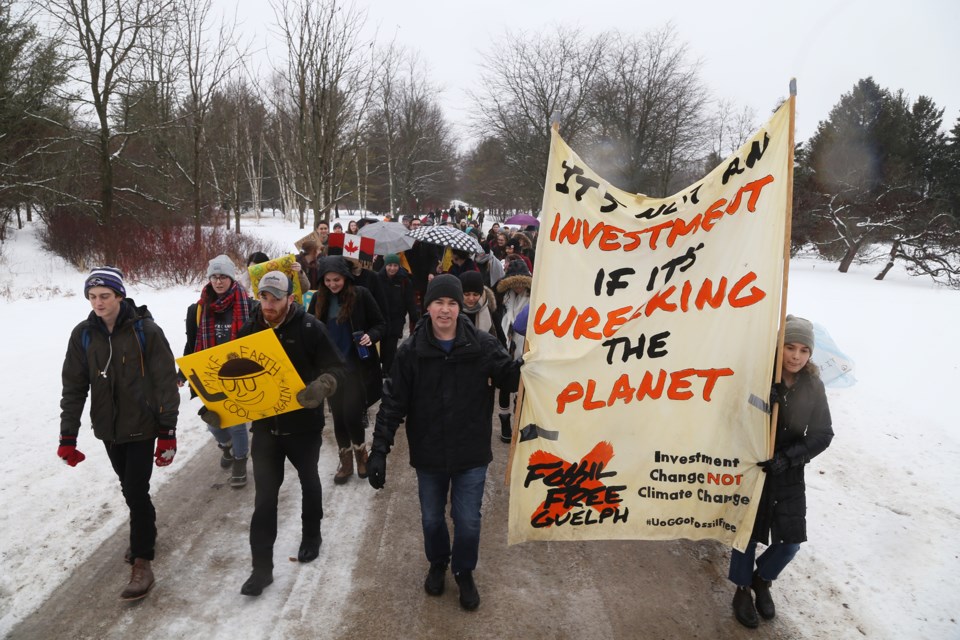On Wednesday, the University of Guelph will consider a motion to divest itself from over $3 million in investments held in the fossil fuel industry following a seven-year effort led by Fossil Free Guelph.
According to a report to the university’s Board of Governors, 11 per cent of the public equity portion of the university’s $32.4-million endowment portfolio contains holdings with fossil fuel reserves.
The same report recommends the university commit to full divestment of all holdings with fossil fuel reserves within the endowment fund over a five-year period beginning in April 2020.
That $3.3-million is part of a broader $23.4-million pooled fund. The report states that to divest from the fossil fuel investments, the university must sell off the entire fund and transition to other investments.
That $3.3-million investment in the fossil fuel industry cited in the report is based on an analysis as of Dec. 31, 2019 and does not factor in the nosedive of much of that sector’s worth in recent weeks, though it's not known if any of the holdings most affected are held by U of G.
The Board of Governors will make a final decision at its meeting Wednesday.
In September of 2019 the U of G signed on to the United Nations’ principles for responsible investment (PRI), which included a commitment to incorporate Environmental, Social, and Governance (ESG) issues into investment analysis and the decision-making process.
Eighty per cent of the university’s General Endowment Fund is designated for student assistance, like scholarships and bursaries.
In 2017 the Board of Governors made a decision to continue its investments in the fossil fuel industry, but committed to reducing the carbon footprint of its endowment fund portfolio by 10 per cent within two years.
Total divestment was not considered by U of G at that time and Fossil Free Guelph said 10 per cent target by the university was doing the bare minimum in the face of climate change.
At the 2017 meeting, Don O’Leary, U of G’s vice-president of finance, administration and risk, told students that divesting from its stake in fossil fuel companies would have an effect on them, but in the most recent report, longer-term data supports the position that return on investment can be equal to or higher in responsible investment funds
Fossil Free Guelph is a mostly student-run group that seeks divestment by the university from fossil fuel companies entirely over a five-year period.
